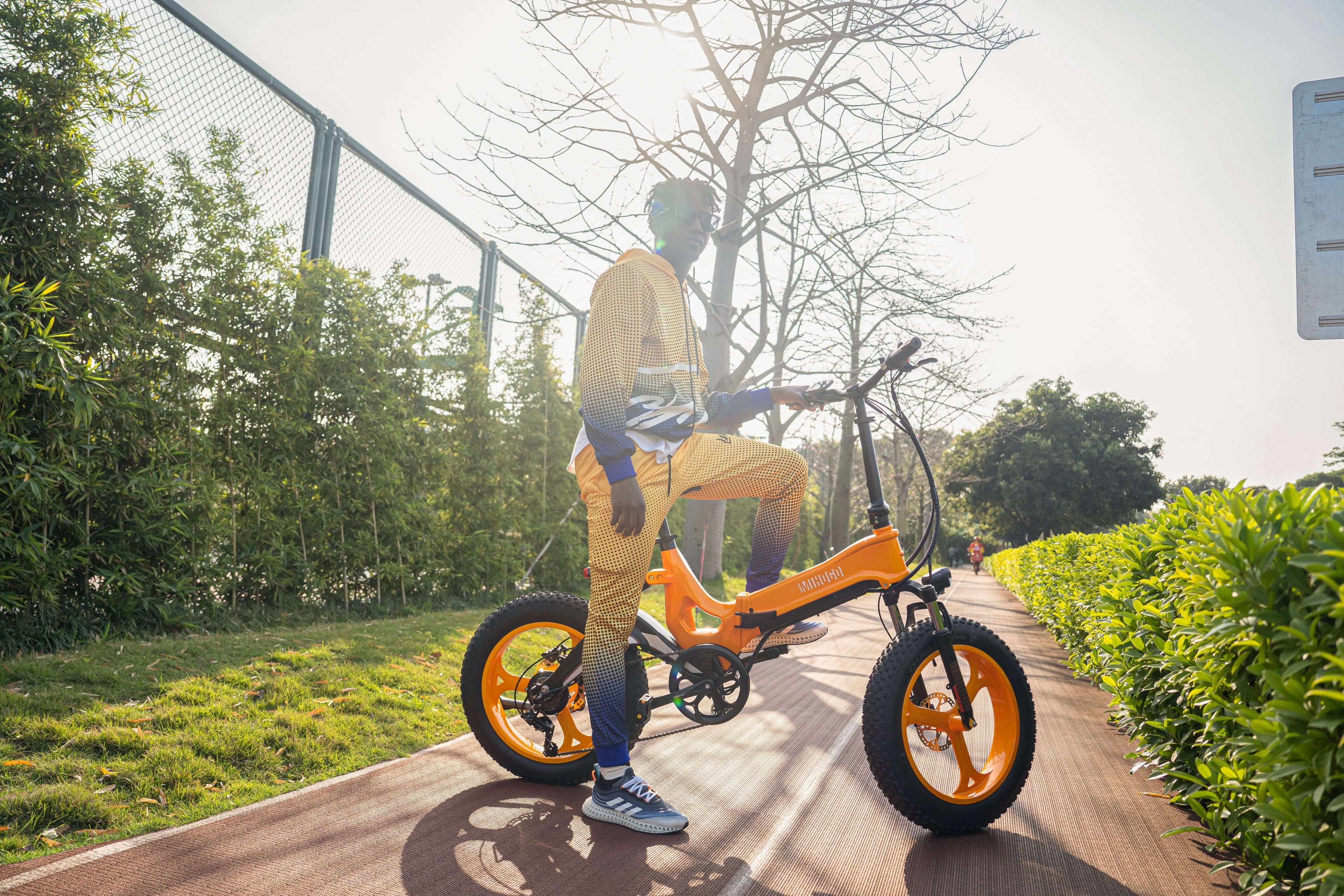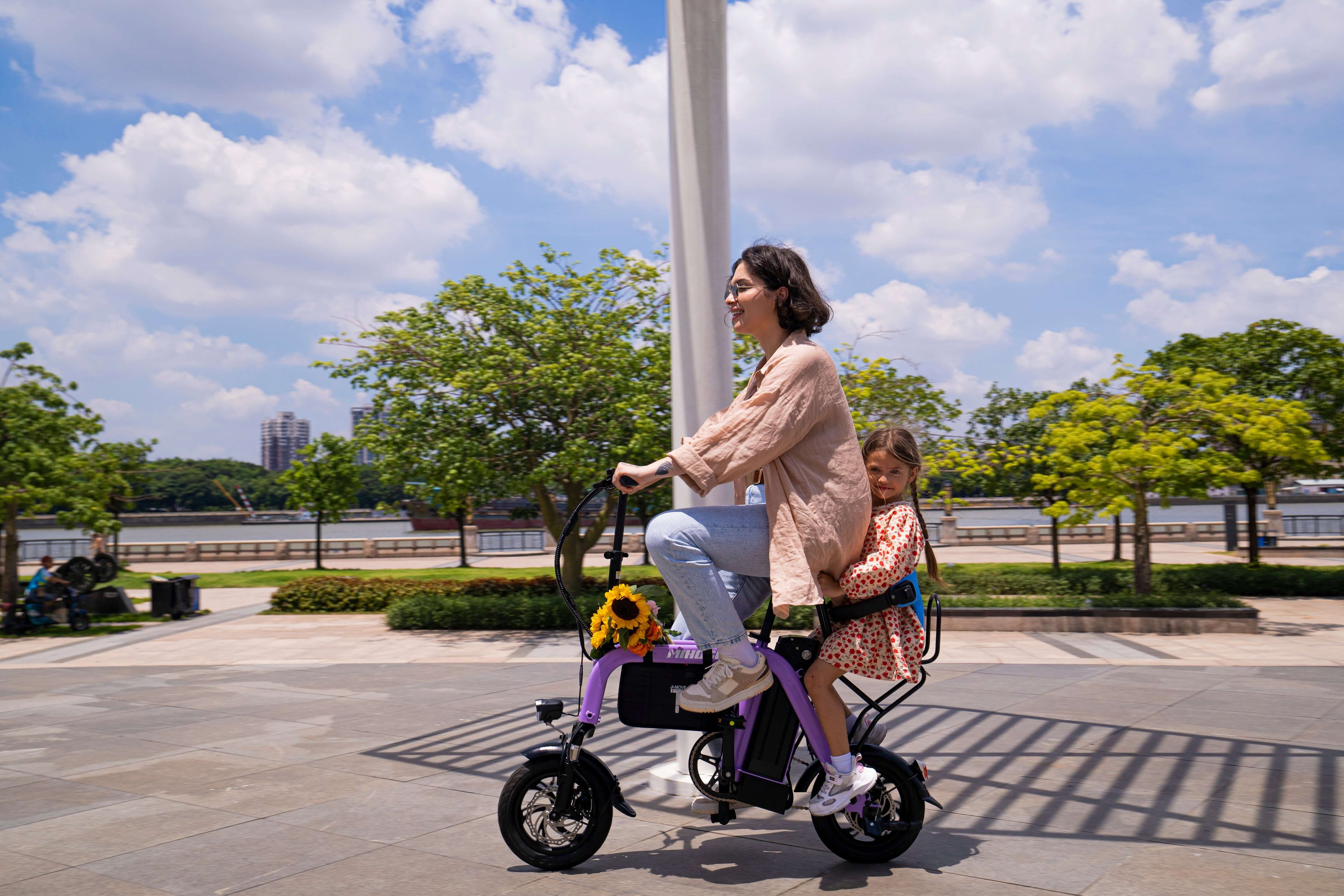Understanding E-Bike Classifications: The Foundation of Registration Laws
Before diving into state-specific requirements, it's essential to understand the three-class system that forms the backbone of most e-bike legislation. Currently, 44 states have established various definitions for ebikes, with most adopting this standardized framework:
Class 1 E-Bikes (Mihogo Air750 Max, ONE Utility)
- Definition: Pedal-assist only, no throttle
- Maximum Speed: 20 mph assisted
- Registration: Generally not required in most states
- Best For: Your Mihogo Air750 Max (carbon fiber, 121-mile range) and ONE Utility (167-mile range) excel in urban commuting and long-distance touring
Class 2 E-Bikes (Mihogo RX 2.4, Mini)
- Definition: Throttle-assisted up to 20 mph
- Registration: Typically not required
- Best For: The compact Mihogo RX 2.4 (folding design, 40-mile range) and Mini (350W motor, 62-mile range) are perfect for city navigation and recreational riding
Class 3 E-Bikes
- Definition: Pedal-assist up to 28 mph
- Registration: May be required in some states
- Note: Currently, Mihogo's lineup focuses on Class 1 and 2 models for maximum versatility
State-by-State Registration Requirements
States Requiring E-Bike Registration or Licensing
Alaska
Alaska continues to define an electric bicycle as a "motor-driven cycle" and enforces tighter regulations, including the need for an Class M license. All Mihogo models require:
- Class M motorcycle license
- Government-issued ID while riding
- Helmet required (minimum age 14)
Hawaii
Hawaii has mandatory registration fees for e-bikes. Mihogo riders must:
- Register their e-bike with the state
- Pay associated registration fees
- Carry registration documentation
New Jersey
New Jersey requires licensing for Class 3 e-bikes. Since Mihogo's current lineup consists of Class 1 and 2 models, registration is not required, but riders should:
- Carry valid driver's license or ID
- Follow all traffic laws applicable to bicycles
States with No Registration Requirements
California
California is a leader when it comes to e‑bike laws—and 2025 brings significant updates. Key regulations for Mihogo riders:
- No registration required for Class 1 and 2 e-bikes
- Helmets must be worn by all riders under 18
- Motor power limits: e‑bike motors must not exceed 750 W continuously (all Mihogo models comply)
Terrain Suitability: Your Mihogo Air750 Max thrives on California's diverse bike paths and coastal routes, while the RX 2.4's folding design is perfect for San Francisco's hilly terrain and public transit integration.
Washington
Washington treats e‑bikes the same as traditional bicycles, with these updates in 2025: Helmets are required for riders under 17. Mihogo riders enjoy:
- Full bike lane and path access
- WE‑Bike rebate program offering up to $1,200 in rebates for qualifying low‑income residents
Terrain Suitability: The Mihogo ONE Utility's 167-mile range makes it ideal for Washington's extensive trail systems and urban commuting between Seattle's neighborhoods.
Florida
In Florida, you don't need a license or registration to ride your e-bike. Benefits include:
- No helmet requirements for riders over 16
- Access to roads, bike lanes, and most paths
- All three classes recognized with few restrictions
Terrain Suitability: Florida's flat terrain is perfect for the Mihogo Mini's efficient 350W motor, maximizing its 62-mile range for beach cruising and urban exploration.
2025 Legal Updates and Emerging Trends
Federal Incentive Programs
The Electric Bicycle Incentive Kickstart for the Environment (E-BIKE) Act continues to be discussed at the federal level, which could provide federal tax credits for e-bike purchases, potentially making your Mihogo investment even more attractive.
State Rebate Programs
Several states offer substantial rebates:
- Colorado: $450 off a qualified e-bike purchase
- California: $10M E-Bike Incentive Project pilot will provide grants to help low-income people afford the best green transportation
Regulatory Concerns
The League is deeply concerned about proposed legislation in several states mandating registration, licensing, and insurance for low-speed e-bikes. These proposals could affect accessibility and affordability of e-bike ownership.
Mihogo Model Terrain and Legal Compatibility Guide
Urban Commuting Champions
- Mihogo Air750 Max: Carbon fiber construction and 121-mile range make it ideal for long urban commutes and light trail riding in states with extensive bike infrastructure
- Mihogo RX 2.4: Folding design perfect for mixed-modal commuting in cities with public transit integration
Adventure and Utility Specialists
- Mihogo ONE Utility: 167-mile range and robust build excel in rural areas and states with extensive trail networks
- Mihogo Mini: Compact size ideal for urban environments and states with dense city centers
Safety and Compliance Best Practices
Universal Requirements
Regardless of registration status, all Mihogo riders should:
- Wear appropriate safety gear
- Follow traffic laws applicable to bicycles
- Maintain proper lighting for visibility
- Regular maintenance checks for optimal performance
Documentation to Carry
- Government-issued photo ID
- Proof of purchase for your Mihogo e-bike
- Insurance information (if required by state)
- Registration documents (where applicable)
The Future of E-Bike Regulation
Urban commuters drive 82% of the market, and e-bikes are expected to revolutionize city commuting as they become widely available. As infrastructure improves and adoption increases, we can expect:
- Greater standardization of the three-class system
- Improved trail access for Class 1 e-bikes
- Enhanced safety features and requirements
- Potential federal legislation providing nationwide consistency
External Resources
For the most current information on e-bike laws in your area:
- PeopleForBikes State Law Database - Comprehensive state-by-state legal updates
- Federal E-Bike Classification Guidelines - CPSC official regulations
- League of American Bicyclists - Advocacy and legal developments
Conclusion: Ride Confidently with Mihogo
Understanding e-bike registration requirements doesn't have to be complicated. With most states embracing the benefits of electric transportation, Mihogo's Class 1 and 2 e-bikes offer maximum legal flexibility and riding freedom. Whether you choose the long-range Air750 Max for adventure touring, the versatile ONE Utility for daily commuting, the compact RX 2.4 for urban mobility, or the efficient Mini for recreational riding, you're investing in a transportation solution designed for today's legal landscape.
As regulations continue evolving toward greater e-bike access and standardization, Mihogo remains committed to providing compliant, high-quality electric bikes that meet both current legal requirements and future mobility needs. Start your e-bike journey with confidence, knowing your Mihogo is ready for whatever the road—and the law—brings.







